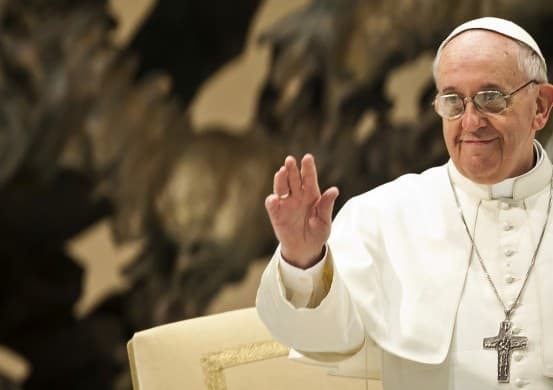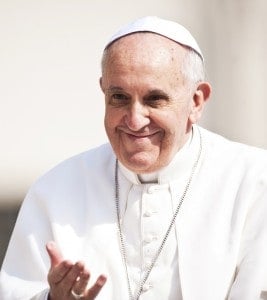Somewhere during the second year of a (reasonably successful) collegiate debate career, a teammate offered me the kind of blunt feedback that I still treasure out of that particular group of friends. At the time of this all-important talk, I was feeling like a champ after just having dominated a debate round. Not only had my arguments been vastly superior both in content and presentation, but I’d sprinkled the my arguments with just enough caustic wit to thoroughly expose my opponents’ weakness. I hadn’t just won; I’d battered my opponent. My friend, however, had a different perspective. “Spotts,” he said without prelude, “you clearly won, but by the time you were done, I was hoping that you wouldn’t – you were an asshole out there.”
After I’d recovered from that well-earned-stomach-punch of a sentence I started paying closer attention to the stylistic nuances of the most successful of my debating peers. Some modeled the style I’d unconsciously started to adopt: a take-no-prisoners, no-holds-barred arrogance. These had a swagger that said “I’m right and you’re not. End of discussion.” And, truth be told, sometimes this style was a winning style. But the vast majority of the best, while they still had their own moments of arrogance and caustic mockery (it’s a debater’s malady), also tended to have something else: a charm, an affability, a fetching earnestness. They didn’t simply make the strongest arguments; they presented strong arguments through a persona that made me and others want to believe them.
It wasn’t long before I started trying to leave behind the worst of my acidic arrogance behind – both on stage and off. And, as it turns out, in debate – as in the rest of life – being right isn’t the only thing that matters.
***
As many observers have noted, and despite persistent hints of Big Changes to come for the Church in both Catholic and secular media, for at least the first nine months of his pontificate Pope Francis’s teachings have differed from those of his predecessors far more in form than in content. Take, for example, Pope Francis’s well-publicized decision in the first weeks of his pontificate to invite two hundred of Rome’s homeless to lunch in the Vatican. “This is your home,” remarked a cardinal on the Pope’s behalf. Lovely. Of course, as a variety of outlets, including, ahem, this one, noted, Pope Benedict had done the exact same thing to little or no fanfare. Same action, two wildly different responses.
Similar observations have repeatedly been made about about Francis’s discussions of Church doctrine. While Francis routinely is credited for dropping bombshells in his various homilies and speeches, to date, Francis has done far more to reform the governance of the curia than he has done to amend any actual teachings, especially on hot-button issues such as abortion, contraception, married clergy in the Latin Church, and the ordination of women. Rather, it’s his tone on these issues that’s struck so many as a radical change.
It’s a tone that is perfectly described in the two word title Pope Francis has given his new apostolic exhortation (basically a papal letter): Evangelii Gaudiam, “the joy of the Gospel.” In the opening paragraph of the document he writes: “I wish to encourage the Christian faithful to embark upon a new chapter of evangelization marked by this joy” (EG #1). Noting that far too often Christians seem to live as “sourpusses” (EG #85), or as if life was only “Lent without Easter” (EV #6), Francis is calling all to embody that same joyful freedom he has made every effort to live during his short time as pope.
Interestingly, when Francis himself looks for witnesses to the joy of Christ he himself sees the similarity between what he and his predecessor Benedict XVI desired. Francis writes:
“I can say that the most beautiful and natural expressions of joy which I have seen in my life were in poor people who had little to hold on to. I also think of the real joy shown by others who, even amid pressing professional obligations, were able to preserve, in detachment and simplicity, a heart full of faith. In their own way, all these instances of joy flow from the infinite love of God, who has revealed himself to us in Jesus Christ. I never tire of repeating those words of Benedict XVI which take us to the very heart of the Gospel: ‘Being a Christian is not the result of an ethical choice or a lofty idea, but the encounter with an event, a person, which gives life a new horizon and a decisive direction’ ” (EG #7).
But a life a joy does not mean absence of critique, and Francis – as we are well aware by now – does indeed bring some thunderous critiques throughout Evangelii Gaudium. Take, for example, Francis’s remarks on topics economic1: “In this context, some people continue to defend trickle-down theories which assume that economic growth, encouraged by a free market, will inevitably succeed in bringing about greater justice and inclusiveness in the world,” he writes. “This opinion, which has never been confirmed by the facts, expresses a crude and naïve trust in the goodness of those wielding economic power and in the sacralized workings of the prevailing economic system.” Yowch. Similarly, he remarks, “Just as the commandment ‘Thou shalt not kill’ sets a clear limit in order to safeguard the value of human life, today we also have to say ‘thou shalt not’ to an economy of exclusion and inequality.” Then the zinger: “Such an economy kills.” As my high school students would say, “Ooh kill em!” (or, if you prefer, the Buzzfeed version of the same: 11 Quotes That Show That Francis is Really Nailing This Pope Thing).2 Francis’s candid, hard-hitting critique didn’t escape notice either-economic liberals and conservatives alike quickly took notice of the trenchant critiques of runaway capitalism embedded in the document.
But is this kind of critique actually anything new? A non-Catholic friend and colleague of mine picked up on just this, asking me: “Wait, popes have been critiquing the excesses of capitalism since the 19th century, right?” Quite right. And, even more startlingly for some, Francis’s strident critiques of capitalism are hardly groundbreaking even relative to his most immediate predecessor. The hard-hitting quotes I’m about to lay on you come from Benedict XVI’s encyclical letter Caritas in Veritate.
In section #36, Benedict warns, “In and of itself, the market is not, and must not become, the place where the strong subdue the weak.” In EG #40 Benedict remarked, “Today’s international economic scene, marked by grave deviations and failures, requires a profoundly new way of understanding business enterprise.” Elaborating on the theme, Benedict criticizes an “unduly rigid assertion of the right to intellectual property, especially in the field of health care” (EG #28), “unregulated exploitation of the earth’s resources” (EG #21), and perhaps most dramatically of all, a call for an effective global authority “to manage the global economy; to revive economies hit by the crisis; to avoid any deterioration of the present crisis and the greater imbalances that would result” (EG #67).
The point here is simple: judged by the standards of American politics and economics, Benedict’s social critiques and positions are just as radical as Francis’s. And yet it is Francis who is being portrayed the prophetic economic radical (see for example: here, here, here, here and here). What gives?
I’ll say this: just like my 19-year old self, what gives is the importance of rhetoric.
***
When he was elected pontiff, Pope Benedict remained what he was before his election: an academic. He loved the life of the mind, and he was very, very good at it. So he, like all of us, brought his gifts to the teachings he presented. Which is why his public addresses and official writings read like theological works written for other theologians.3
When I read Benedict’s encyclicals I find them to be beautiful, deep, and important works; gifts to the Church. But, from a rhetorician’s perspective, the academic style preferred by Benedict prizes clarity and depth over approachability; it does invite people in, but what it invites them to do is to study, to reflect, and to enter more deeply into the riches of the tradition. As such, it speaks more readily to those already familiar with the tradition and engaged in such reflection than to the general listener or outsider. Academics, as my professors in graduate school never tired of reminding me, live in perpetual danger of being unable to answer the all-important question “So what?”
In altogether different language this was the question that my friend asked me after my caustic debate triumph. Translated, my friend’s stomach-punch of an observation regarding my debate style could be read, “Of course you’re right, but if no one can hear your logic because of the way you’re deciding to say it, then who cares if you’re right not? Then so what?”
To use language as old as Aristotle (older, really), the logos of an argument, an argument’s logic, is only one element of what makes an argument persuasive. As Greek rhetoricians knew long ago (and pretty much anyone who’s tried to persuade anyone of anything since also knows) mere force of argumentation, mere reasons, are rarely enough to persuade. Not infrequently, emotional appeal (pathos) carries the day. And, as I had to learn, persuasiveness isn’t just about the logic of the message, it’s also about the speaker. More often than not, for a message to be heard, it is the speaker who must be believable.4
So, Benedict and many other popes before him have critiqued economic systems, including capitalism, that subjugate people to the system, but making the argument is only one step in a persuasive process. Making it hearable is another step altogether.
***
Paying attention to the similarity between Francis and Benedict’s teaching, and the difference in their rhetorical styles, lets us stop falling back into our old, cardboard labels of “liberal” or “conservative”, “traditional” or “progressive.” It lets us pay attention to how Francis and Benedict are literally collaborating with one another to talk not just about the Church’s economic teaching, but about how the office of the papacy can reach different people with different rhetorical styles in order to help all of them trust the person who is actually doing the evangelizing: Jesus.
Before I even laid eyes on Evangelii Gaudium, I had a Unitarian Universalist and an agnostic ask me questions about the quotes they were reading from it. An old acquaintance (who, when last we discussed religion, identified as a Unitarian) posted a link to the document on Facebook with a simple note asking friends to read it in its entirety. The coverage received by the document in all types of media follows the single constant of the first nine months of Francis’s pontificate: when Francis speaks, people pay attention. The point, however, is not that Benedict and Francis are at odds. They aren’t. The point is also not that the logic of the message, the logos, is irrelevant to the preaching of the Gospel. It isn’t. The point is that Francis has made himself a credible preacher of the Gospel by the sheer force of his authentic life in Christ. The lesson is that who we are can matter as much as what we say.
***
The cover image is by Joy Mosaic by Margaret Almon at Flickr and can be found here.
— — // — —
- For economic types, this piece from The Atlantic takes an interesting angle at Francis’s economic approach while Vanity Fair has this hilarious quiz on Francis’s economics ↩
- No, I don’t know why this hasn’t been written yet either. ↩
- All to say, and let me be very clear on this, I am not contending that Pope Benedict, like my 19 year old self, was an asshole. Seriously, not at all. The point is about how I learned how style shapes content, i.e., rhetoric, nothing else. ↩
- For all you debate nerds, this is called the ethos element of rhetoric ↩




